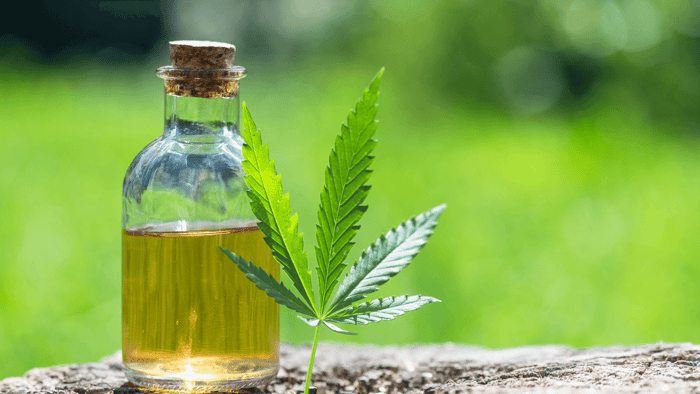
In the last few years, collagen has made a splash as a nutritional supplement with the potential to heal arthritic joints and plump wrinkled or sagging skin; in other words, it’s a possible silver bullet to the effects of aging. But silver bullets rarely turn out to be as effective of a treatment as they’d claim, so what can collagen really do for you? Another question you may have: How to improve collagen production?
What is Collagen?
Collagen accounts for one third of the protein in your body and is divided into 28 types by where they are found and their amino acid composition. 90% of your collagen is Type I, which is found in skin, tendons, internal organs and bone. An important structural component of connective tissue, some type of collagen is found in or on just about every surface within your body.
The strength and elasticity of many organs, including your skin, tendons and cartilage, is a product of collagen. It may help your mental image of this protein to know that pure collagen will thicken up the smoothies it’s added to, and gelatin is cooked collagen.
In your twenties, your body’s breakdown of collagen begins to outpace the production of new collagen. The collagen deficit increases over time, and collagen breakdown accelerates during menopause. Because collagen is an integral part of the structure and function for many systems, including your skin, losing collagen over time results in many of the visible and invisible effects of aging.
How is Collagen Made?
Collagen is needed out skin to be healthy, but how is it made? When collagen is developed naturally in your body, it is formed by the combination of amino acids that come from nutrients in the protein rich food that you consume on a day to day basis. Deficits in collagen can be found as you age due to the lack of nutrients that you body can absorb.
There are other ways to make sure that you have the collagen you need in your body! If you aren't producing enough naturally there are certain foods and vitamins that can make collagen abundant in your skin. Collagen supplements are always another alternative as well, making sure that your skin can be the most healthy!
Foods that improve collagen production
Some of the best foods for collagen production can be can be found right on your supermarket shelf. Protein rich foods are the best way to go, with fish, chicken, beef, beans, and much more! Protein isn't everything you need however, vitamin C plays a big role in the creation of collagen for you, so eating vitamin C rich food and vitamins is an essential step in developing collagen too! Organic beef bone broth is said to be an amazing place to find collagen for consuming. Adding a little broth to your meals adds flavor to your life and collage to your skin!
If food isn't enough for a collagen deficit, then collagen supplements can be taken too. These supplement are usually tasteless and can be added to shakes, soups, and food, making it a less stressful way to get your nutrients as well.

How to improve collagen production naturally?
It’s important to support your body’s internal collagen production by giving it lots of the correct materials. Adding any protein to your diet will aid collagen production, because proteins are broken down into amino acids during digestion, which can then be used to build collagen.
For a more targeted pro-collagen diet, choose foods that are naturally high in collagen. When these are broken down, your body will absorb large quantities of the precise ingredients needed. Traditional Chinese wisdom supports eating collagen-rich body parts such as pigs’ feet and shark fins, but collagen can be found in the modern American diet too. Stock up on bone broth, chicken and egg whites.
Also make sure to consume enough vitamin C and vitamin A, which are important during collagen synthesis.
You can also supplement your diet with hydrolyzed collagen, which is broken-down collagen, in either pill or powder form. When added to smoothies, soups or other foods, hydrolyzed collagen won’t thicken up like pure collagen will. If you choose this option, it’s important to check the source. Most collagen supplements are meat-derived, and all collagen supplements are highly processed and concentrated, which opens the door to potential heavy metal or toxin content. You should be able to find detailed information on your potential supplement to be sure that it is safe.

What Not to Do
There are also many collagen creams and moisturizers on the market, which are designed to topically increase the amount of this skin-supporting protein. Unfortunately, moisturizers are applied to the epidermis and collagen particles, which are long and rope-like in structure, are too big to get through that layer to the deeper dermis, where collagen does its work. (The jury’s still out on whether hydrolyzed collagen is small enough to absorb.) Taking the collagen route to young-looking skin, therefore, is more of an inside-out project.
You can alter your lifestyle to decrease the rate of collagen loss, too. Number one, in big bold letters, is sun protection. Ever hear that suntanning will make you wrinkly? Collagen is why. UV rays damage collagen, leading to accelerated loss and wrinkled, thin skin at an earlier age. Use sunscreen, wide-brimmed hats and shade to protect yourself.
Other actions you can take to protect your skin and connective tissues: cut back on sugar and refined carbohydrates, caffeine, stress, and other activities that promote free radicals.
Keeping your collagen levels up sounds pretty healthy, right? Be bold and don’t be afraid to make the lifestyle changes you need to have the body you want!

.JPG)


